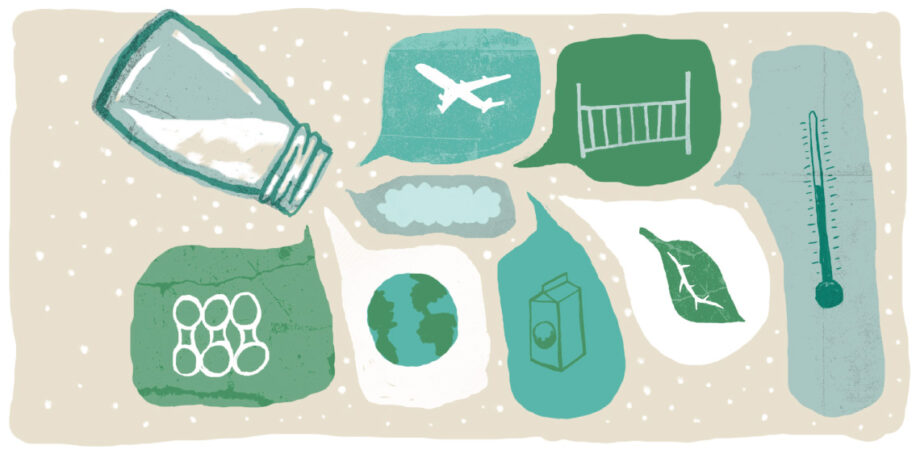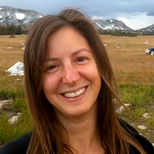June 18, 2013 — People tell you all kinds of things when you’re pregnant, and much of it involves the bad decisions you might soon make, are currently making or apparently already have made. Last month, a friend warned me about accepting a secondhand crib. “Don’t use a hand-me-down mattress!” she said. “They say used mattresses can cause SIDS.”
“Make sure your salt is iodized or your baby could have serious thyroid problems!” another friend cautioned while I was cooking, prompting me to discover, undoubtedly too late, that I’d been eating the iodine-free variety.
At the airport, I ran into a third friend while picking up my belongings after going through the X-ray scanner. “You shouldn’t go through those machines!” she scolded me. “You’re supposed to ask for a pat-down instead when you’re pregnant!”
Pregnancy has allowed me for the first time to understand how hard it is to tell good information from bad. As a science journalist, I make my living by being able to decipher the two, but all these warnings bewilder me. As a result, I feel like I can see a bit more clearly how misinformation can become epidemic, leading to collective panic and seriously bad policy making. So I have tended to take this unsolicited advice with several grains of noniodized salt. Many of these warnings strike me as absurd — whether they come from friends, strangers, books penned by supposed experts or the truly maddening discussions I occasionally can’t help reading on parenting websites. I have resolved to not give in to other people’s hysteria. Humans have been reproducing for millennia, I reason, without any books to admonish them to avoid sleeping on their backs or drinking unpasteurized orange juice.
Suddenly, I began to understand something else: exactly how — and why — so many people opt to ignore the looming threat of climate change.
At least that was my position until a friend who writes about health and the environment suggested that I was choosing to ignore (as opposed to, say, fact check) the pregnancy warnings largely for emotional reasons. While I normally take a rational, science-based view of things — climate change, say, or vaccines — my desire to avoid the paralysis of fear, she said, prompted me to overlook some of the science surrounding pregnancy. I was indignant, until I realized she was probably right.
And suddenly, I began to understand something else: exactly how — and why — so many people opt to ignore the looming threat of climate change. Or to cherry-pick the facts that convince us that environmental problems are vastly overstated. Or to think that those preaching the most alarming outcomes are being melodramatic. “A threat this great can generate a great deal of anxiety if we let it,” Glenn Croston, author of The Real Story of Risk: Adventures in a Hazardous World, wrote last year in Psychology Today. “So we don’t.” It’s how climate deniers gain an upper hand, Croston maintained: They take advantage of the “inner denier” we all harbor. “They merely exploit our own desire to create a safe bubble of denial,” he wrote, “to build a levee holding back the rising tide of uncertainty and allow ourselves to preserve a vision of a safe, happy, and stable world.”
The more people ply me with high-pitched alarms about the dire consequences of my actual or potential actions, the less inclined I am to listen to them. The more something strikes me, for whatever reason, as fearmongering, the less likely I am to pay it any mind. It’s not that I don’t recognize the obvious causal dynamic between my actions and the health of my baby; it’s just that I can easily dismiss the news if it comes from someone I know to be a worrier, or if it smacks of hearsay (“C-sections can cause autism!”), or if it just doesn’t jibe with my preconceived ideas.
Most people have neither the time nor the inclination to look up individual studies of whether, say, global warming does in fact cause more hurricanes. The best we can do, most of the time, is heed the advice of those whose opinions we respect, be they better-informed friends, clueless-but-cocksure folks who seem credible because they share our general worldview, or actual experts.
So when my health-writer friend — someone I know to be well versed in how environmental toxins impact the human body — suggested I should take a closer look, it resonated. But when I tried to fact check some of the admonitions I’d received, it turned out to be somewhat difficult. For example, in 2012 the New York Times reported, “Most experts agree that as long as the X-ray backscatter machines are functioning properly, they expose passengers to only extremely low doses of ionizing radiation,” seeming to dispel the assertion that radiation from airport X-ray scanners can cause harm in utero. But the piece then went on to probe the machines’ questionable maintenance records and history of mechanical problems.
Ensia shares solutions-focused stories free of charge through our online magazine and partner media. That means audiences around the world have ready access to stories that can — and do — help them shape a better future. If you value our work, please show your support today.
Yes, I'll support Ensia!

Thanks for the post and congratulations!
I am a researcher by trade and training. Telling prenatal fact from fictitious old wives’ tale requires digging through voluminous medical journals and statistical reports.
(Example: The list of “foods to avoid” because of potential listeria contamination bears little resemblance to the list of foods that have *actually caused* listeriosis outbreaks in the past 6 years.)
So... since I have spent a considerable amount of time digging through as much science and statistical evidence as I can, I am perpetually frustrated by the "advice" I get from others.
That said, with so much mis-information floating around, and such difficulty in uncovering evidence-based analysis, it’s little wonder people stick to (often incorrect or misleading) anecdotes and headline-level “advice.”
I made a habit of fact-checking the advice (since my wife was busy enough with all of the little details of actually being pregnant), and making sure to circle back to the advisers and tell them why they were wrong or right. What amazed me is how people clung to things they had "heard" even in the face of polite but irrefutable evidence to the contrary, and even when they had no skin in the game.
And I think this, too, is something we see in climate-change denial. Accepting that humans are quite probably damaging our planet *by changing the climate* requires challenging quite a bit of what we think we know about how the world works. Like, for example, the belief that humans are so insignificant that they could never affect mighty Nature at any scale (true in small, low-tech groups -- not so true at around 7 billion individuals).
"I have resolved to not give in to other people’s hysteria."
A good thought period.
Likewise with climate change. When evidence is forthcoming that increased CO2 in the atmosphere is mainly responsible for the planet warming (which it hasn't now for a decade and a half, anyway), then I will take them seriously. In its absence I will suspect the whole thing is a scam.